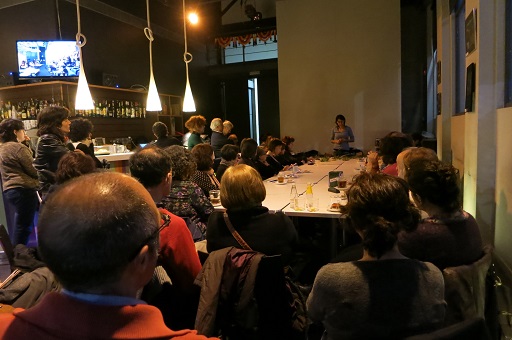1.1 Origins of Evidence Cafés
Clough and Adams (2020) discuss how Evidence Cafés are loosely based on Café Scientifique (Dallas, 2006; Grand, 2014) which is where people meet up in an informal venue such as a café or library and exchange knowledge about a specific topic. The core principle of a Café Scientifique is that they allow an open, informal dialogue, as opposed to a lecture, in which only one person would speak on a subject (Clough et al., 2017; Clough and Adams, 2020). Whilst Café Scientifiques focus on a science topic, Evidence Cafés focus on a topic, such as research or practice, relevant to a specific group (Clough et al., 2016; Clough and Adams, 2020).
Evidence Cafés have been used across topics, domains and contexts; from policing and healthcare to sustainable development. This approach has been found to provide a new lens for collaboratively identifying and exploring different evidence and voices for complex issues. Migration is a complex issue with contrasting views from stakeholders within academic, media, public and policy contexts. Evidence Cafés have provided migration topics with an effective means of getting these different stakeholders to talk and listen to each other.
Introduction

